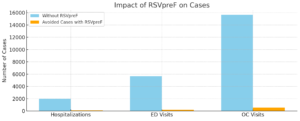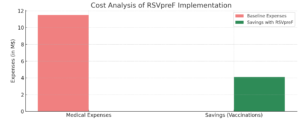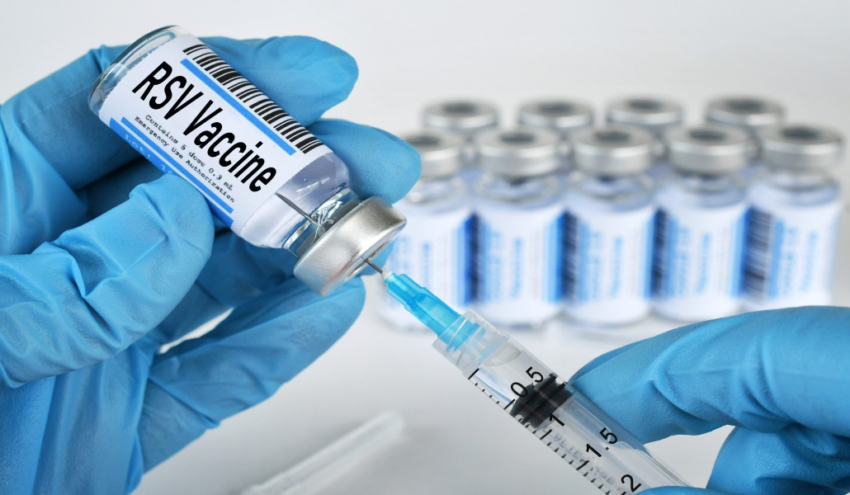Authored by: Humza Rana
In order to evaluate the effects of RSV on children, a study conducted in partnership with Pfizer Dubai, Pfizer Biopharmaceuticals, and DHA examined the available data.
Like any other global city, Dubai may have certain health issues. RSV, or respiratory syncytial virus, has the potential to seriously harm newborns. In order to improve the healthcare ecosystem, the Dubai Health Authority (DHA), which is in charge of regulating healthcare standards in the emirate, places a strong emphasis on tackling RSV and investigating maternal vaccination.
A common respiratory virus, RSV can cause serious illnesses, particularly in young children and newborns. In susceptible groups, the virus frequently causes respiratory problems, hospital stays, and in extreme situations, even death. With an average hospital stay of almost four days, RSV is the cause of almost one-sixth of pediatric healthcare interactions in Dubai.
Beyond the pain experienced by the individual, RSV epidemics put a strain on healthcare resources, cause financial and emotional hardship for families, and can interfere with society’s ability to operate. By giving RSV prevention and control first priority, Dubai not only protects the health and welfare of its youngest residents but also fortifies the resilience of its healthcare system.
Maternal immunization is a promising strategy in the fight against RSV. Antibodies are passed from pregnant women to their unborn children, offering passive immunity in the crucial early months of life when babies are most susceptible to RSV infections. By reducing hospitalization rates and accompanying expenses, this preventative strategy not only protects newborns from serious RSV-related issues but also lessens the strain on healthcare institutions.
In Dubai, however, there is still a lack of knowledge regarding RSV and maternal immunization. To overcome this, extensive educational initiatives are required to debunk myths and promote informed decision-making among healthcare professionals, pregnant women, and the general public. Even with Dubai’s highly developed healthcare system, there are still logistical obstacles to improving infrastructure and incorporating vaccination into standard prenatal care.
It is crucial to comprehend Dubai’s local load in order to fight RSV successfully. In order to evaluate the effects of RSV on children, a study conducted in cooperation with Pfizer Dubai, Pfizer Biopharmaceuticals, the Gulf area, and the DHA examined insurance claims data spanning from January 2014 to September 2023. This study monitored outcomes for three months in patients under the age of eighteen who had been diagnosed with RSV for the first time.
Out of the 28,011 patients in the study, 25,729 (92%) of the kid cases had RSV, and 42% of them had a respiratory condition linked to RSV. Notably, 1% of children in the 0–2 age group had risk factors such as immunodeficiency and congenital conditions. Four days was the average length of stay in the hospital. Significant hospitalization expenses were observed in all age categories, highlighting the necessity of further RSV research and development to improve therapies and vaccinations. Future healthcare policies may be influenced by these findings.
In order to safeguard privately insured infants under one-year-old in Dubai, another study conducted in collaboration with Pfizer Gulf and the DHA calculated the five-year financial impact of the new vaccination RSVpreF among pregnant women in comparison to no intervention.
By using a deterministic cohort model to illustrate the clinical outcomes and economic costs of RSV-LRTI and maternal vaccination for infants from birth to one year of age (assuming a 10% uptake rate), the clinical effects and financial implications of RSV lower respiratory tract infections were assessed among infants.
The model’s predicted results included RSV-LRTI (respiratory syncytial virus lower respiratory tract infection) cases, RSV-LRTI-related mortality, and RSV-LRTI and vaccine expenses. These were predicted for each of the five annual birth groups during the first year of life.
The findings demonstrated that, in the absence of maternal RSVpreF, there would be approximately 2,000 hospitalizations for respiratory syncytial virus lower respiratory tract infections over a five-year period, 5,655 cases requiring care in an emergency department, and 15,652 cases requiring care in an outpatient clinic (OC). The associated total medical expenses would be $11.5 million.
Pregnant women who use RSVpreF year-round would avoid 107 hospitalizations, 196 ED visits, and 549 OC visits during a five-year period. With expected savings of US$0.5 million for medical care and US$3.6 million for vaccinations, the annual budget impact per member would be US$0.19.

The results of this analysis indicate that administering RSVpreF to expectant mothers in Dubai would greatly diminish the incidence of respiratory syncytial virus lower respiratory tract infections and alleviate the financial load on privately insured infants, with only a slight increase in cost per insured individual.
Research indicates that utilizing RSVpreF in pregnant women in Dubai would significantly decrease the frequency of respiratory syncytial virus lower respiratory tract infections in privately insured infants, alongside minimal additional costs for each covered individual. Given the substantial hospital expenses associated with children affected by RSV, the importance of ongoing research endeavors and bold actions against RSV remains paramount.
By emphasizing the continuation of research projects and executing proactive strategies such as maternal immunization, we can dramatically improve public health outcomes and lessen the impact of RSV. Immunizing mothers not only protects them but also provides their infants with essential antibodies, delivering crucial defense against RSV during their most critical developmental phases.
It is essential for policymakers, health practitioners, and communities to advocate for maternal vaccination initiatives and back ongoing research activities. United, we can safeguard mothers and infants, paving the way for healthier generations ahead.

Artificial Intelligence in Respiratory Syncytial Virus
Uniting artificial intelligence (AI) with research and maternal vaccination against respiratory syncytial virus (RSV) is revolutionizing public health efforts. AI accelerates vaccine development through predictive modeling, identifying high-risk populations, and analyzing large datasets to optimize vaccine effectiveness. In maternal vaccination programs, AI facilitates personalized vaccination schedules, enhances supply chain efficiency, and enables real-time monitoring of outcomes. Additionally, AI-powered diagnostic tools and wearable devices help in early detection and monitoring of RSV symptoms in newborns, while virtual assistants and chatbots provide tailored health guidance to mothers. By integrating AI with research initiatives, healthcare systems can achieve greater efficiency, scalability, and personalization, ultimately reducing RSV’s impact on vulnerable populations.
Conclusion
Bringing together research, maternal immunization, and artificial intelligence to tackle RSV presents an encouraging route toward enhancing public health outcomes in Arab nations. These initiatives safeguard the most vulnerable segments of society while yielding economic advantages and strengthening the robustness of healthcare systems. As the region remains focused on child health, the integration of innovative technologies and maternal vaccination campaigns will be a fundamental element of victory in the fight against RSV.
Q/A
- What is RSV?
A) Respiratory syncytial virus (RSV) is the most common cause of hospitalization among U.S. infants. Receipt of either a maternal RSV vaccine or administration of RSV antibody (nirsevimab) to infants was first recommended during the 2023–24 RSV season. - What is DHA?
A) DHA refers to the Dubai Health Authority, a government entity in Dubai, United Arab Emirates, responsible for overseeing the health system in the emirate. It manages and regulates healthcare services, policies, and initiatives aimed at ensuring high standards of public health for Dubai’s residents and visitors.
Sources
Omnia Health
CDC
